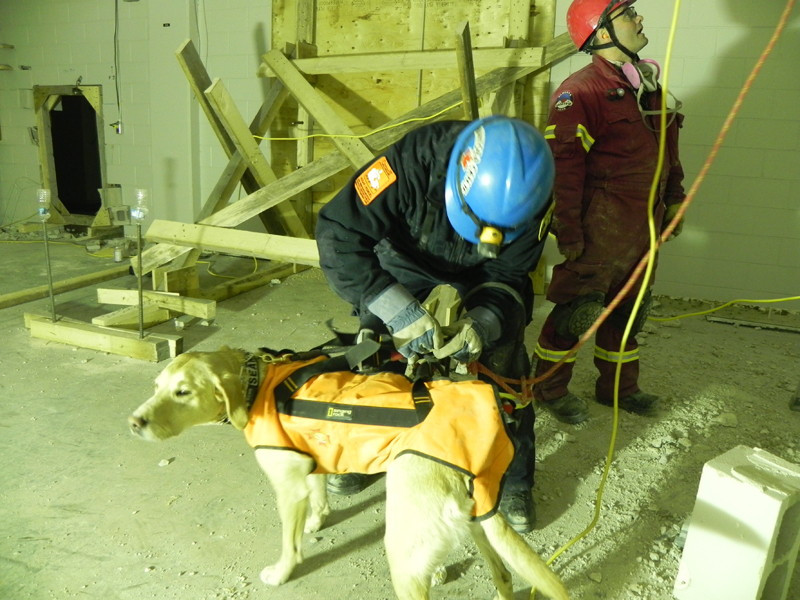Manitoba search and rescue team takes lead in disaster situations
They are a special team designed to save lives and manage disaster scenarios too large and complex for the resources of local emergency responders.
Members of Manitoba’s Urban Search and Rescue (USAR) team swept into the former James A. Richardson International airport terminal Feb. 9 to test their skills in a mock building collapse.
“We are a provincial asset. We can be used in times of forest fires, any other natural disasters,” said Tobin Praznik, USAR Manitoba Taskforce leader.
“Winnipeg has so many old buildings, there’s always a possibility that a lot of these old buildings can collapse. We always want to have someone on the ground ready to assess the situation.”
Following the 9-11 terrorist attacks on New York City, the federal government formed USAR teams in Vancouver, Toronto, Halifax, and Calgary after realizing the country would not be prepared for a similar large-scale structural disaster.
Manitoba’s team operates under the Office of the Fire Commissioner, and is the only provincial team due to the high number of potential and real disasters like flooding, Praznik said.
With more than 100 members, the team includes volunteers from law enforcement to paramedics to engineers to heavy rigging specialists and more.
In June, the team was sent to flood-ravaged areas around Lake Manitoba to help stabilize homes destroyed following the spring flood.
“(The) OFC thought it would work better if we had a province wide team, because we could manage the finance side of the house better, and bring in so many skills and experiences that we couldn’t handle with a Winnipeg team,” Praznik said.
Teams are funded primarily by the federal government, with each receiving about $400,000 a year to pay for equipment, vehicles and logistical support.
The Manitoba USAR team assigns volunteers into units that oversee a jurisdiction. Units train four times a year in smaller exercises. A provincial exercise, like the one at the airport, happen once a year, usually in a building that is about to be torn down.
The exercises challenge the USAR’s ability to sustain a search-and-rescue operation for 48 hours, testing their skills, as well as revealing some of their weaknesses.
In the case of the airport exercise — simulating a situation where a bomb had gone off — the team had trouble getting its diesel generators and other equipment working in the cold weather, said Scott Kurbis, USAR operations coordinator.
“Transportation was also an issue, because we were far away from the terminal itself so we had to co-ordinate the trucks to get our people out there,” Kurbis said.
“This exercise is great because we can discover these problems in our game plan, and the guys get a chance to practice their training in a realistic situation.”
When there are multiple compromised buildings, each is assigned a certain number of “casualty points” depending on how severe the damage is, Kurbis said. The team then mobilizes to set up a command post.
Once the command post is set up, teams start to search the buildings for survivors.
Published in Volume 66, Number 21 of The Uniter (March 1, 2012)








